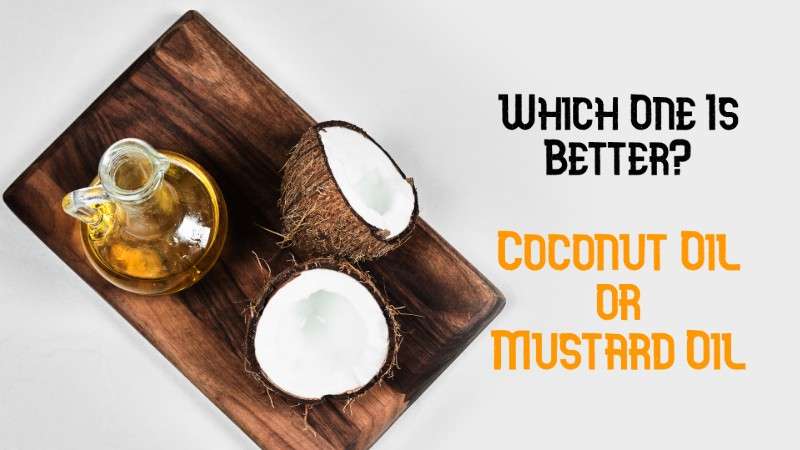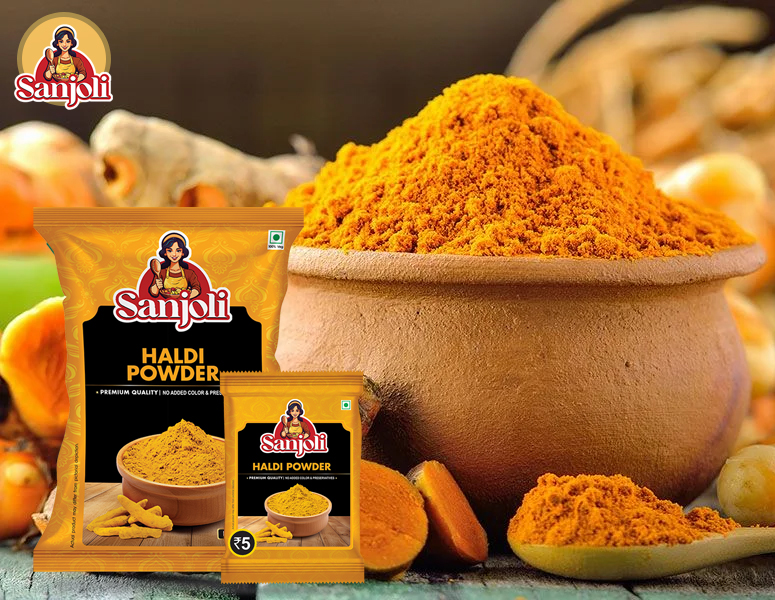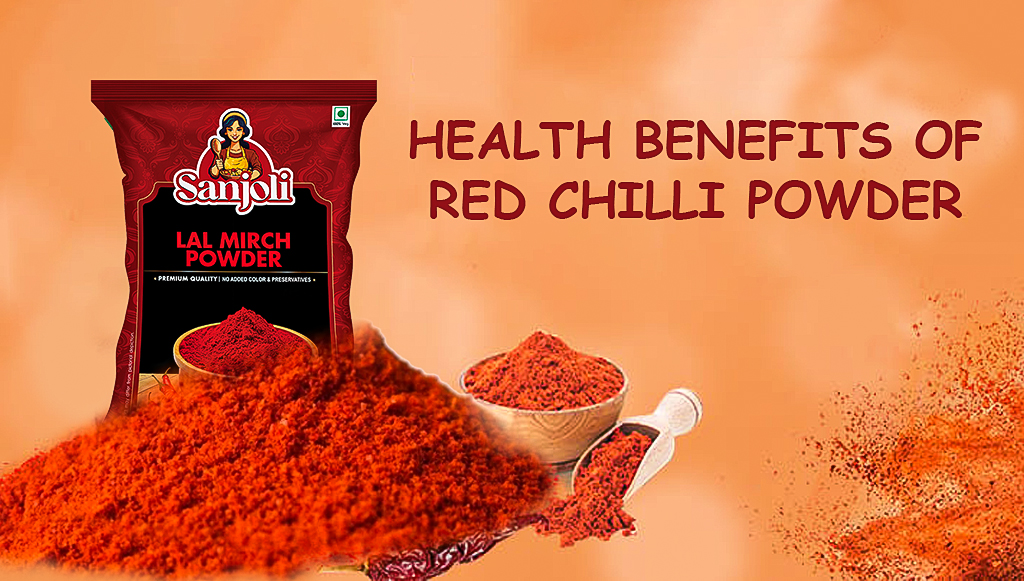Coconut and mustard oils are highly sought after for cooking and health-related purposes. The question that arises naturally is which one of these is better. They both have their benefits and drawbacks. So, how do they stack up against one another?
Let’s delve deeper into coconut oil vs mustard oil and, more importantly, which one is better for you.
Coconut Oil vs Mustard Oil: Key differences to know
1. Flavor and Aroma
Coconut Oil: Coconut oil is nutty with sweet coconut touches. Its neutral taste makes it a popular ingredient in various foods and beverages, from smoothies and cakes to anything that calls for a delicate hint of coconuts. This kind of oil has fragrant hints strong enough to complement baked goods and meals cooked at lower temperatures.
Mustard Oil: At the other extreme, mustard oil has a mustard flavor and scent, which is unsurprising. It has a relatively warm but somewhat spicy flavor, a common ingredient in some Indian cultures, where the oil is added to curries and sauces as seasoning. Although it possesses a very strong odor, which some enjoy and which some might find unpleasant to smell due to its perfume-like deep earth aroma, it has a distinct flavor that many appreciate.
2. Smoke Point
Coconut Oil: Coconut oil has a few good characteristics, one of them is its high smoking point which usually sits at around 185 °C (roughly 350 °F). Because of this quality, Coconut Oil is best suited for deep frying and sautéing foods. Since the oil does not decompose or became toxic even with extreme heat, it’s perfect for everyday cooking.
Mustard Oil: Aside from having a high smoke point, usually at approximately 480°F (250°C), mustard oil is also perfect for frying, sautéing, and topics such as tempering. This oil retains its strong taste despite high temperatures, making its use ideal in tadka (tempering), which is reminiscent of the Indian style of cooking whereby hot oil is poured into spices to activate their aroma and taste alongside the oil.
3. Nutritional Content
Coconut Oil: In coconut oil the chief component is saturated fats, and of especially types of fats, what are called medium-chain triglycerides (MCT). MCTs are efficient in digestion and thus easily convert to energy aiding in expeditious energy utilization. They also might be useful by boosting the functions of the brain, providing energy, and improving heart health through increasing the levels of good cholesterol (HDL).
Mustard Oil: Working as an antioxidant, systems protection as well as skin shielding vitamin E is one of the components present in mustard oil. Additionally, the polyunsaturated fatty acids in the oil contribute towards forming strong arteries. Their inclusion in dietary products aids in lowering the amounts of cholesterol that is bad and cholesterol which is good instead.
4. Health Benefits
Coconut Oil: As they incorporate medium chain triglycerides, coconut oil lets the body burn more fats which can be extremely beneficial for aiding in weight reduction. Moreover, it is also beneficial for the heart because it possibly raises the levels of good cholesterol and is highly anti-inflammatory. Additionally, using coconut oil can also assist in ameliorating the condition of an individual suffering from Alzheimer’s’ disease.
Mustard Oil: Its omega 3 content which exceeds trans fats enables its use for controlling bad cholesterol and maintaining proper health of heart. In addition to that, its anti-inflammatory features enable it to alleviate joint pain and solve swelling issues. Mustard oil works as a cooking oil in the kitchen. Additionally, it is used for improving and protecting skin and hair from a beauty perspective.
5. Culinary Uses
Coconut Oil: It’s multipurpose use whether in cooking, baking or as a skin lotion, is a good reason why many people prefer coconut oil. Its taste is a little bit sweet and its therefore great in smoothies, desserts, stir fry, and even in curries. It can also be helpful when making vegan cakes as a replacement for butter.
Mustard Oil: Mustard oil is common in almost all Indian dishes. However, it is more common in Bengal, where Punjabi dishes are cooked. This oil is used to temper spices, marinate meat, and fry it. Due to its overpowering odor, it is added to curries, pickles, and other masaledaar delicacies, which can be great for a food lover.
Coconut Oil or Mustard Oil: Which is Better?
In regard to the question of which is better between Mustard Oil and Coconut Oil, this will depend largely on the particular client, their needs and wishes, and their customs.
Mustard Oil is mild in taste and when frying it tolerates high temperature. Just remember it is also multi-purpose oil which can be used for cooking, baking, and even applying to the skin as moisturizer. Also, is concerned on fats for weight control and heart health.
Mustard oil is most appropriate for individuals who prefer the taste of mustard and is often used as a cooking oil for Indian cuisine. When used during the frying or marinating of hilsa fish, it intensifies the Indian taste. Consuming this oil is also beneficial for the heart as it is rich in omega-3 fatty acids.
Conclusion
Which one is better? This entirely depends on your preference. Coconut oil is the answer if one is looking for an oil rich in omega 3s and a heavy flavor. On the other hand, expect a lighter flavor and greater heart benefits in mustard oil.
Nutrition, like everything else, is highly individualized. Sanjoli Spices has you covered for top quality mustard seeds, coconut oils and organic spices. Enhancing your cooking with new-in-kind oils and food products is no more tough as Sanjoli Spices’s products can satisfy your health and cooking needs.
FAQs:
1. Does Coconut Oil Work Better Than Mustard Oil for Hair Growth?
Ans. Coconut oil works better for the hair than mustard oil due to its deep conditioning properties which helps to offset and prevent harm to the hair.
2. Which Oil Is Better for Frying?
Ans. Both coconut oil and mustard oil have high smoking points, making them superb for frying. Nevertheless, mustard oil has a decidedly stronger taste.
3. Are Coconut Oil or Mustard Oil Useful for Weight Loss?
Ans. Coconut oil may most influence weight loss because its medium-chain triglycerides boost metabolism.



